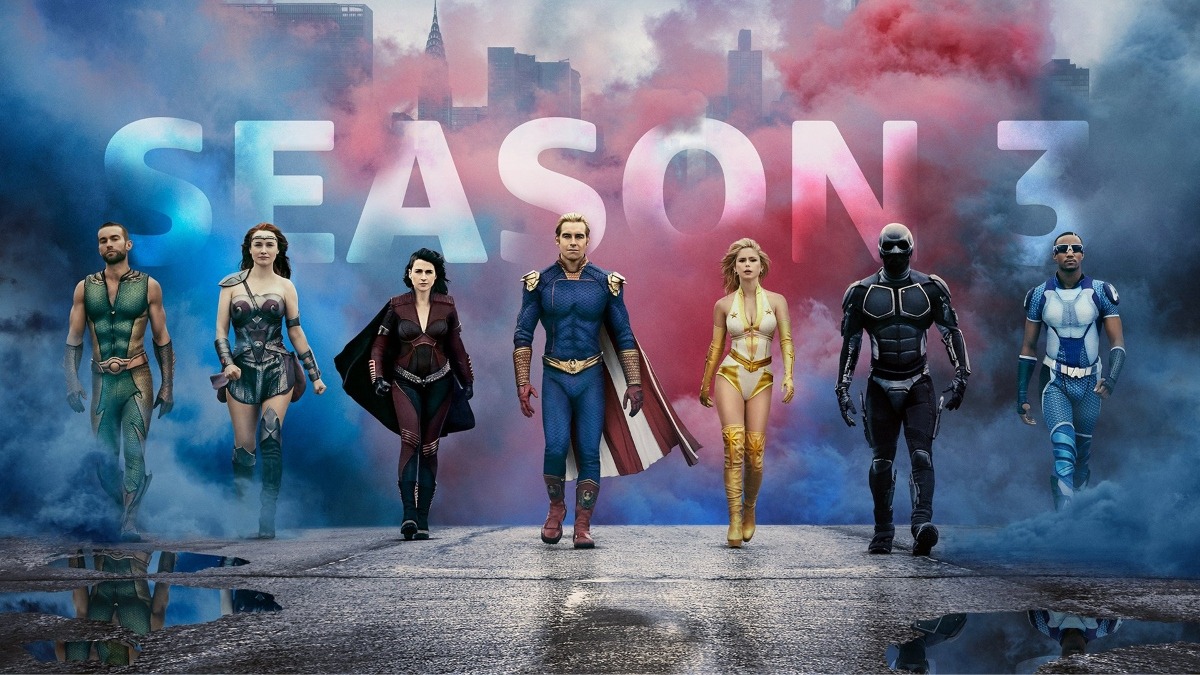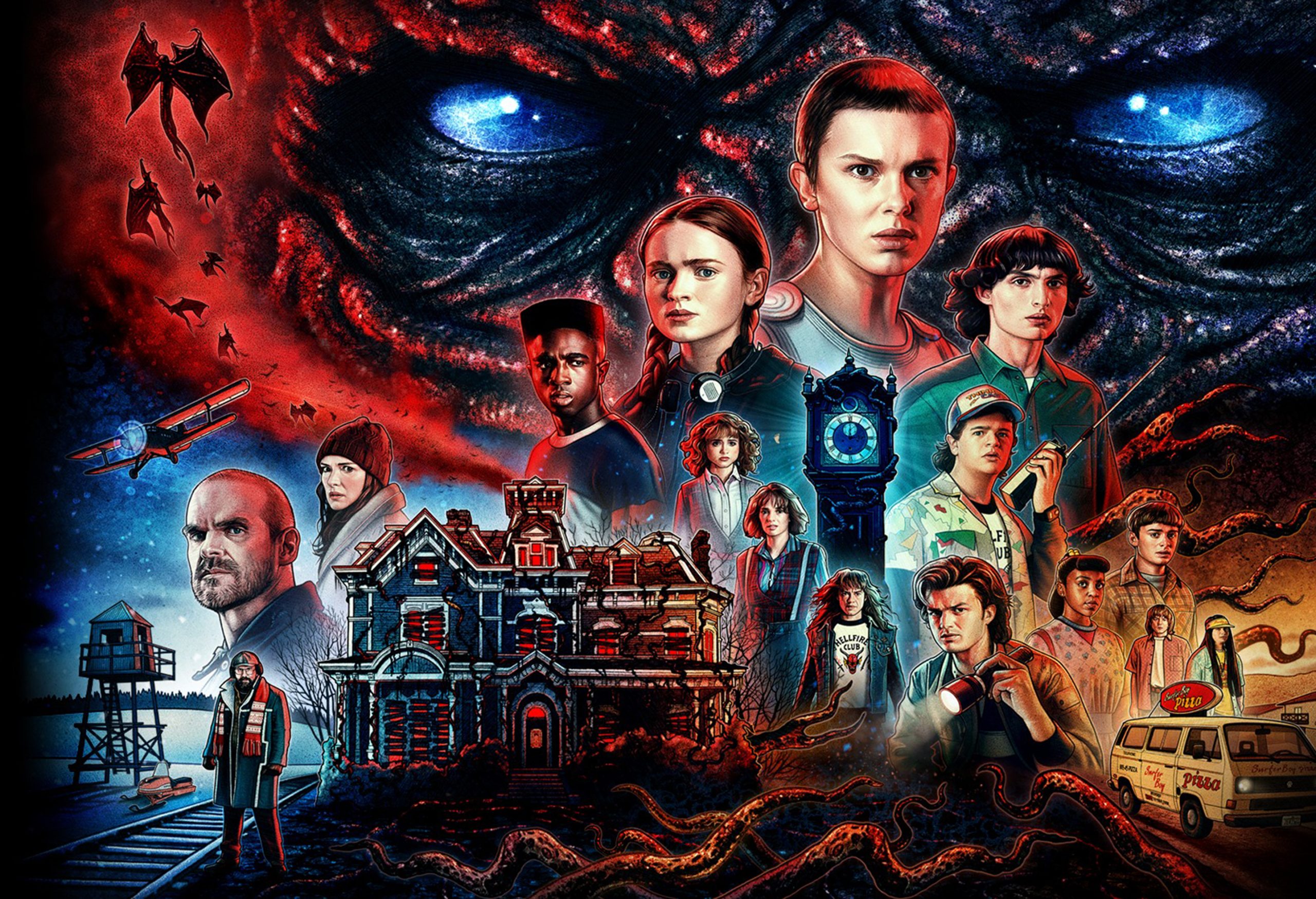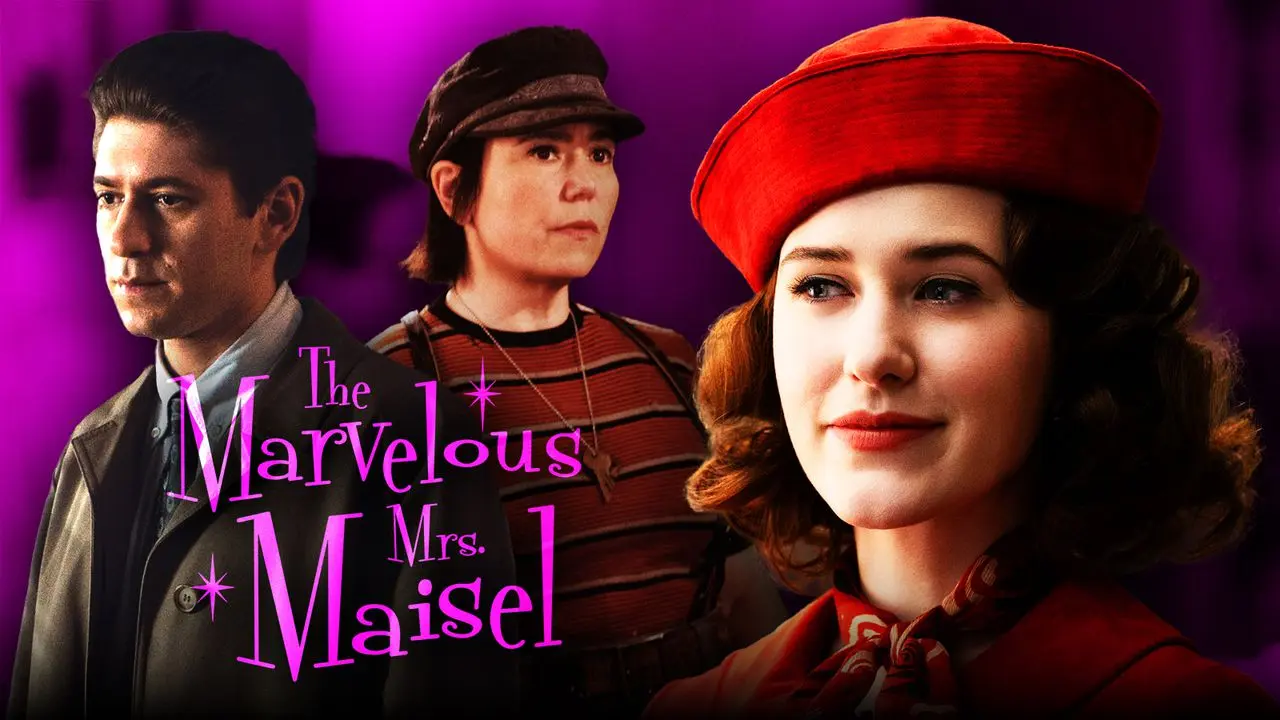The Boys, the critically acclaimed television series created by Eric Kripke and based on the comic book of the same name by Garth Ennis and Darick Robertson, has carved a distinctive niche in the superhero genre. With its unapologetically dark and subversive take on the world of caped crusaders, The Boys has garnered a dedicated fanbase and critical acclaim. As the show delves into its highly anticipated third season, viewers can expect an intensified exploration of moral ambiguities, explosive action sequences, and a deeper plunge into the corrupt underbelly of super-powered individuals.

A Recap of Darkness: The Premise of The Boys
The Boys unfolds in a world where superheroes exist, but they are far from the altruistic saviors typically depicted in comic books. Instead, these supers are controlled by powerful corporations, fueled by greed, and plagued by moral corruption. The series revolves around a clandestine group known as “The Boys,” led by the relentless Billy Butcher (played by Karl Urban). Their mission is to expose the truth about these so-called heroes and hold them accountable for their actions, no matter how nefarious.
The story takes a chilling turn when Hughie Campbell (played by Jack Quaid), a young man traumatized by the actions of a reckless superhero, joins forces with The Boys. Together, they embark on a perilous journey to unveil the darkness lurking beneath the polished façade of the superhero industry. With the help of secretive government agent Mallory (played by Laila Robins) and the mysterious superhuman Vought International, the battle between good and evil becomes a complex, morally ambiguous saga.
Season 3: An Escalation of Tensions and Conflicts
As The Boys gears up for its third season, the narrative promises to intensify both in terms of character dynamics and plot complexity. The stakes are higher than ever, with the superheroes growing increasingly corrupt and power-hungry, their actions pushing the boundaries of morality.
One of the central conflicts in the upcoming season revolves around the authoritarian regime of Vought International, the conglomerate overseeing the superhero industry. Vought’s grip on its super-powered assets tightens, resulting in an escalation of conflicts with The Boys. The struggle for control and justice becomes more treacherous, leading to explosive confrontations and unexpected alliances.
Moreover, the third season delves deeper into the personal lives and vulnerabilities of the characters, providing a nuanced exploration of their motivations and moral compasses. Themes of redemption, revenge, and the blurred lines between heroism and villainy are meticulously woven into the fabric of the storyline, challenging both the characters and the audience to confront uncomfortable truths.
New Characters and Complex Alliances
One of the hallmarks of The Boys is its ability to introduce compelling new characters while maintaining the depth and complexity of the existing ones. Season 3 is no exception, as it introduces fresh faces that add intriguing layers to the narrative.
One such character is Soldier Boy (played by Jensen Ackles), a superhuman with a storied history and connections to the original Vought superhero team. Soldier Boy’s arrival brings a mix of nostalgia and tension, as his presence dredges up buried secrets and unsettles the established power dynamics among the supers.
Additionally, the enigmatic Love Sausage (played by Andrew Jackson) makes his debut, injecting a dose of unpredictability and mystique into the unfolding events. Love Sausage’s peculiar abilities and ambiguous alliances create an aura of mystery, leaving both The Boys and the audience on edge.
Exploring Moral Ambiguity: A Deeper Dive
At its core, The Boys is a character-driven exploration of moral ambiguity and the consequences of power. The show fearlessly confronts uncomfortable questions about the nature of heroism, the abuse of authority, and the limits of ethical conduct. Season 3, with its intricate plotlines and multifaceted characters, delves even deeper into these themes, challenging the audience’s perceptions and forcing introspection.
The moral dilemmas faced by The Boys become increasingly complex as they navigate a world where right and wrong blur into shades of gray. Characters are forced to confront their own demons, question their motivations, and reevaluate their convictions. The line between hero and villain becomes increasingly tenuous, leaving viewers on the edge of their seats, pondering the characters’ choices and their own ethical compasses.
Action Sequences and Visual Spectacle
One of the defining features of The Boys is its adrenaline-pumping action sequences and visually striking cinematography. Season 3 promises to elevate the show’s trademark action to new heights, with meticulously choreographed fight scenes, explosive set pieces, and jaw-dropping special effects. The visceral impact of the battles between The Boys and the supers resonates with viewers, immersing them in the heart-pounding intensity of the confrontations.
Additionally, the visual spectacle extends to the design of the superheroes themselves. The Boys has garnered praise for its inventive and often subversive take on superhero costumes and abilities. Each superhuman character possesses a unique and visually captivating aesthetic, reflecting their personalities and powers. Season 3 continues this trend, introducing new supers with innovative designs that enhance the overall visual appeal of the show.
Addressing Contemporary Issues: A Social Commentary
Beyond its captivating narrative and action-packed sequences, The Boys serves as a poignant social commentary, addressing contemporary issues such as corporate greed, celebrity culture, and the abuse of power. The series shines a spotlight on the moral decay of institutions and the commodification of heroism, drawing parallels to real-world events and societal trends.
Season 3 continues to tackle these themes with unflinching honesty, offering a critical lens through which to examine the complexities of modern society. The show’s willingness to confront uncomfortable truths and challenge prevailing norms adds depth to its storytelling, resonating with audiences and sparking important conversations about the world we live in.
Critical Acclaim and Cultural Impact
Since its debut, The Boys has received widespread critical acclaim for its sharp writing, compelling characters, and thought-provoking themes. The series has become a cultural phenomenon, inspiring fan theories, merchandise, and discussions across social media platforms. Its impact on the superhero genre is undeniable, subverting traditional tropes and redefining the expectations of both fans and critics.
The show’s ability to balance dark humor, intense drama, and social commentary has earned it a dedicated fanbase that eagerly anticipates each new season. The cultural impact of The Boys extends beyond the screen, influencing the broader landscape of television and challenging other creators to push boundaries and explore new narrative territories.
Conclusion: The Evolution of The Boys
As The Boys embarks on its third season, it does so with a boldness and creativity that exemplifies its evolution as a groundbreaking television series. The show’s ability to dissect the superhero genre, confront moral complexities, and address contemporary issues sets it apart as a trailblazer in the realm of television storytelling.
With its morally ambiguous characters, explosive action sequences, and unapologetic exploration of societal themes, The Boys continues to captivate audiences, leaving them eagerly anticipating each new episode. As the series navigates the intricate web of alliances, betrayals, and revelations, it challenges viewers to confront their own beliefs and biases, making it not only a thrilling entertainment experience but also a thought-provoking social commentary.
In essence, The Boys is more than a superhero series; it is a reflection of the human condition, a dark mirror held up to society, and a testament to the power of storytelling to provoke introspection and inspire change. As viewers brace themselves for the twists and turns of Season 3, they do so with the knowledge that The Boys will continue to push boundaries, challenge norms, and redefine the superhero genre for years to come.


